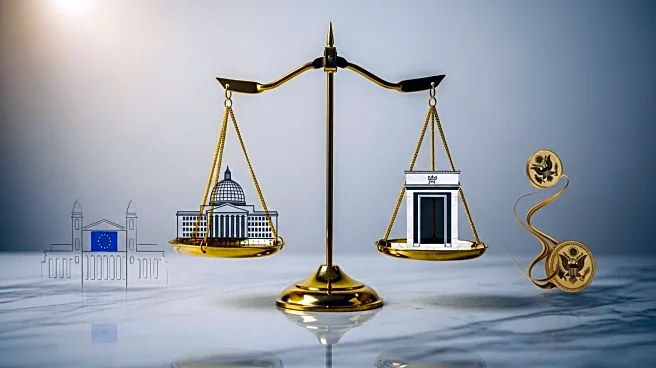What's Happening?
Christine Lagarde, the head of the European Central Bank, has expressed concerns about potential interventions by President Trump's administration in the operations of the U.S. Federal Reserve. According to Lagarde, such actions could have significant global economic implications. The discussion arises amidst a broader context of international economic developments, including a summit involving China, India, and Russia, and debates over the financing of Ethiopia's hydro-project. The BBC's World Business Report highlights these issues, noting the potential for economic instability if the Federal Reserve's independence is compromised.
Why It's Important?
The independence of the Federal Reserve is a cornerstone of U.S. economic policy, ensuring that monetary policy decisions are made based on economic data rather than political pressures. Any perceived or actual intervention by the executive branch could undermine market confidence, potentially leading to volatility in global financial markets. This is particularly concerning for international stakeholders who rely on the stability of the U.S. dollar and the predictability of U.S. monetary policy. The European Central Bank's warning underscores the interconnectedness of global economies and the potential ripple effects of U.S. policy decisions.
What's Next?
If the Trump administration were to intervene in the Federal Reserve's operations, it could prompt reactions from international financial institutions and governments. These stakeholders may seek to mitigate risks by adjusting their economic policies or diversifying their reserves away from the U.S. dollar. Additionally, such a move could lead to increased scrutiny and debate within the U.S. regarding the balance of power between the executive branch and independent agencies like the Federal Reserve.









